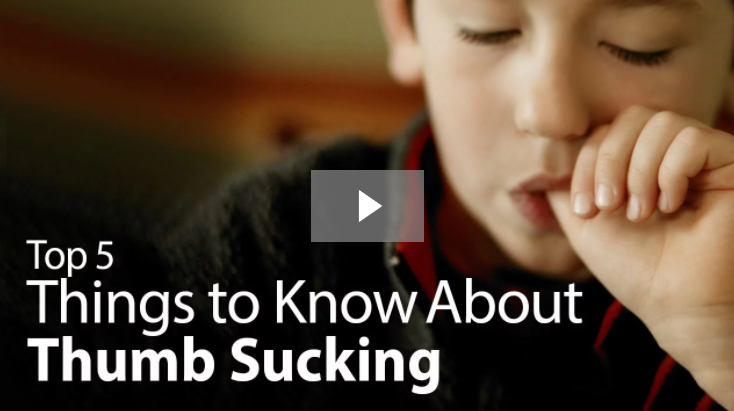Top Five Things to Know About Thumb Sucking

Thumb sucking is a naturally occurring behaviour among infants and young children that can be habitual, sensory-related, or anxiety-induced and is related to nursing.
While it can seem worrying, especially when prolonged, thumb sucking is often associated with signs of self-regulation.
Most infants suck on their thumb a few minutes to bed to soothe themselves to sleep. Your child can also do the same to regulate emotions and as a coping mechanism to anxiety, which is an added advantage for easier parenting.
Your being here is a justification that you’re worried about whether to wean the behaviour off your kid.
Here are some important aspects that you need to know about thumb sucking;
Usually, thumb sucking goes away on its own
Apart from being naturally occurring, thumb sucking stops on its own at the age of four in most children. This is when your child reaches kindergarten and feels the need to dissociate from this “shameful behaviour.” This means you should start training your child on effective mechanisms of stopping sucking on the thumb at the age of three. And should the behaviour extend beyond the age of four, it means that your child requires help from an expert.
Bite problems can result from persistent thumb sucking
Persistent thumb sucking can cause a range of problems, including a change in the growth pattern of the jaw, moving the upper teeth forward, and the development of open bites.
On a more severe scale, thumb sucking can cause teeth misalignment, which may require orthodontic interventions to revert.
The level of damage significantly depends on the degree of forcefulness and frequency upon which your child sucks on the thumb.
Positive reinforcement can be employed to help break the habit
Parents who scold, criticize or ridicule their children for sucking on the thumb observe that their child doesn’t stop; instead, they opt to do it discreetly. If you’re looking to help your child, get over the habit, positive support, positive support, praise and rewards will do magic.
Don’t give sugary treats as they are detrimental to your child’s dental health. Instead, focus on engaging toys, bedtime stories, pacifiers, or anything that will keep your child active.
Knowing about the triggers and finding comforting remedies to combat them is a significant add-on for a successful battle.
Thumb sucking can be discouraged by a dental appliance
An oral appliance called a tongue crib is your last resort when the habit seems not to stop soon. This corrective appliance comes with a metal grate that blocks the top roof of the mouth, making it impossible to suck on the thumb. It is designed to help discourage the habit and retrain the tongue to rest in a better position.
Your dentist may also recommend a tongue crib to correct the posture and positioning of your child’s tongue, which can hugely impact their oral health.
Ask your dentist for advice
The health of your child is your priority as a parent. And since children grow faster, don’t wait to regret a mistake you could effortlessly curb in their heyday.
If it becomes difficult for your child to stop the habit of thumb sucking, don’t hesitate to seek advice from your dentist.
Bottom Line
At Springvale Dental Clinic, our dentist will recommend the best combative mechanisms and walk you through the whole path of correcting your child’s nagging behaviour.


